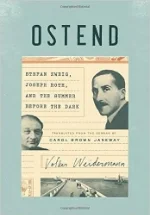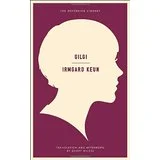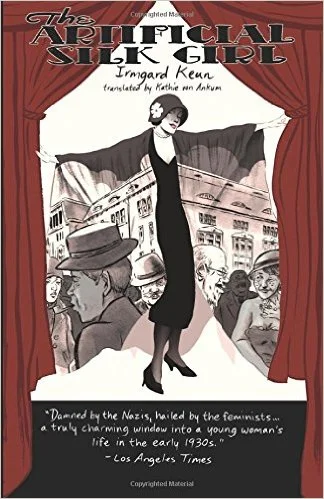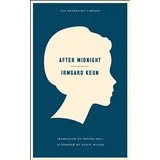By Jennifer Levasseur
They don’t look like what we now think of as refugees—sitting at waterfront cafés over schnapps and shrimp, in suits, ties and summer frocks—but many of them have no place to go. They dine on borrowed money, or on the credit that their respectable clothes still buy them. For these intellectuals and writers gathered in Ostend in 1936, this safe paradise becomes a purgatory of endless waiting. They hide their disillusion, their hopelessness beneath laughter and romance and gossip. Who can say the most shocking thing about the fellow just out of earshot or a few towns away? (Thomas Mann’s children Erika and Klaus are favorite targets.)
Joseph Roth, the alcoholic genius besotted with the Austrian monarchy, is there. Stefan Zweig, recently the most translated writer in the world, has arrived, along with the secretary who will become his second wife. Newspapermen, editors, playwrights, novelists, actresses abound. There’s Arthur Koestler—prodded by his friends—ready to confront Franco. And Ernst Toller, with his young actress lover, and the noose he always packs in his suitcase in case of the worst. They’re all there: those lucky enough to get out while they still have control of their assets, while émigré German publishers still dole out advances for books they might never write, while there’s still hope that the continent won’t explode.
Volker Weidermann paints the desperate jollity in his slim, beautiful narrative of the time, Summer Before the Dark, exquisitely translated into English by Carol Brown Janeway. Centering on the friendship of Zweig and Roth, this micro-history vividly captures the disbelief, the terror, the excitement and the denial within which many of Europe’s Jewish elites waited.
Both Roth and Zweig have been subjects of renewed interest in the last few years. Zweig, championed by Pushkin Press with numerous new editions of his most famous and even lesser works, is regaining his bearing in bookstores, where he’s often again the final entry in the fiction section. I envy those who haven’t yet read his masterpiece, Beware of Pity. It’s a thrilling, page-turning dissection of this complicated emotion through the relationship of a poor, inept cavalry officer and the rich, handicapped daughter of Jewish landowner in the months before the outbreak of the Great War. What might sound like a drawing room melodrama is actually a shocking look at our motives, our basest fears, our competing attraction to and revulsion for the physical, and to what lengths we will go to hide the truths about ourselves.
“Who is writing the great book about now?”
Most books about Zweig and Roth at least touch on the relationship between the two, one a cosmopolitan man of means who gained literary success before he turned thirty, the other a broke journalist for hire who often sold the same unwritten book to several publishers. Zweig funded the last years of Roth’s life in exile, but before that they leaned on each other for literary help. Weidermann chronicles Zweig’s work on the galleys of Roth’s Confession of a Murderer. When Zweig became stuck in his Buried Candelabrum, Roth wrote pages for him, which Zweig incorporated into the text. But theirs was never an equal, simple friendship. In a famous scene recounted by Weidermann, Roth sits at a café pouring drinks over his coat to shame the generous Zweig: “That’s how millionaires are! They take us to the tailor, but they forget to buy us a jacket to go with the trousers!”
Every page of Summer Before the Dark is a surprising delight—an exquisitely researched yet effortless read—but it catches fire with the arrival of the German novelist Irmgard Keun. An actress turned overnight literary sensation, Keun was beautiful, fearless, brazen. While her compatriots toed the line or hid their ideas behind historical tropes, she wrote about the real lives of women living under Nazi rule. After the government banned her books and labeled her a “degenerate woman,” she sued for loss of income (Keun v. Propaganda Ministry). Even before her exile, before her husband denounced her and before her lover fled to the United States, she called her male peers to task: “What are the other émigrés writing? Kesten has a novel about Philip II, Roth has one about the Dual Monarchy of Austria-Hungary, Zweig is writing on Erasmus of Rotterdam … Who is writing the great book about now?”
When she spots the overweight, sick Roth for the first time in Ostend, slumped at a café table and eyeing her with suspicion, she feels an electric sexual charge. Weidermann quotes her writing about the moment: “My skin said ‘yes’ immediately.” Within days of meeting, they move in together. She matches his drinks, and they compete to see who can write more pages in a day. They make fun of the watchful, worrying Zweig.
Keun goes on to base one of her most memorable characters on Roth: the philandering, scheming writer in Child of All Nations who leaves his wife and child as collateral for unpaid hotel bills as they wander, stateless, around Europe in the lead-up to the war.
Roth and Keun spent two years together, pushing one another to excess and writing. She left him once she could no longer tolerate his possessive neediness nor watch his body continue to fail. While Roth’s place in the canon is assured, if only because of the lasting influence of The Radetsky March and Job, Keun deserves a larger readership. Through her novels Gilgi (1931), The Artificial Silk Girl (1932), After Midnight (1937) and Child of All Nations (1938), Keun documented and recreated the lives she saw being lived in Germany during Hitler’s rise. She captured the confusion, the fear and even the ambivalence of ordinary people seeking love and security while their country reconfigured. Her young women, like Keun, are daring and even shocking as they juggle affairs, deal with unwanted pregnancy and lose their heads over men. They hide their sexual exploits from their mothers and they know how to appear more innocent and pliable than they really are. Weidermann writes, “Irmgard Keun has a childlike propensity to question absolutely everything. Why is it that way? Where are my books? Is that just? Is it lawful? And if it isn’t lawful, how can we change it right now?”
While Keun wrote about young women and their sometimes-frivolous concerns, she also gave a voice to the truth of female existence during the Reich even after her established male peers shrunk from documenting the most important events of their time. After Keun fled Germany, took up with and then left Roth, she faked her own suicide to reenter Germany. While she was horrified by her country’s actions, she would not continue to wander homeless. She returned to bear witness, regardless of the danger. (Watch a fascinating five-minute interview with Keun’s daughter about the exploits of her mother below.)
Interview with Martina Keun-Geburtig, dauther of late Weimar author Irmgard Keun. Produced by the German Book Office New York.
As the volume does with Keun, Summer Before Dark introduces us to (or reminds us of) many of the most important interwar writers led to despair through Europe’s unraveling. Many of them, heartbroken through the loss of family and friends and penniless, did not survive the war. Roth drank himself to death in Paris. Zweig ended his life in Brazil, as Toller did in New York.
But their voices have not been silenced—if we continue to read their works.
To receive updates from Sacred Trespasses, please subscribe or follow us on Facebook or Twitter.







